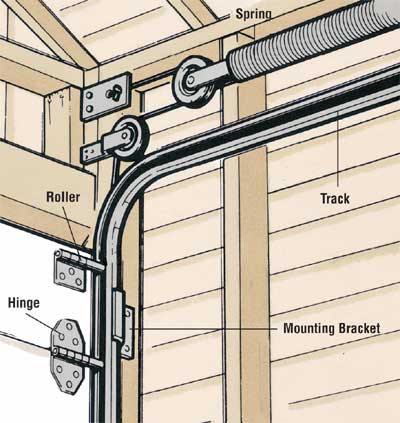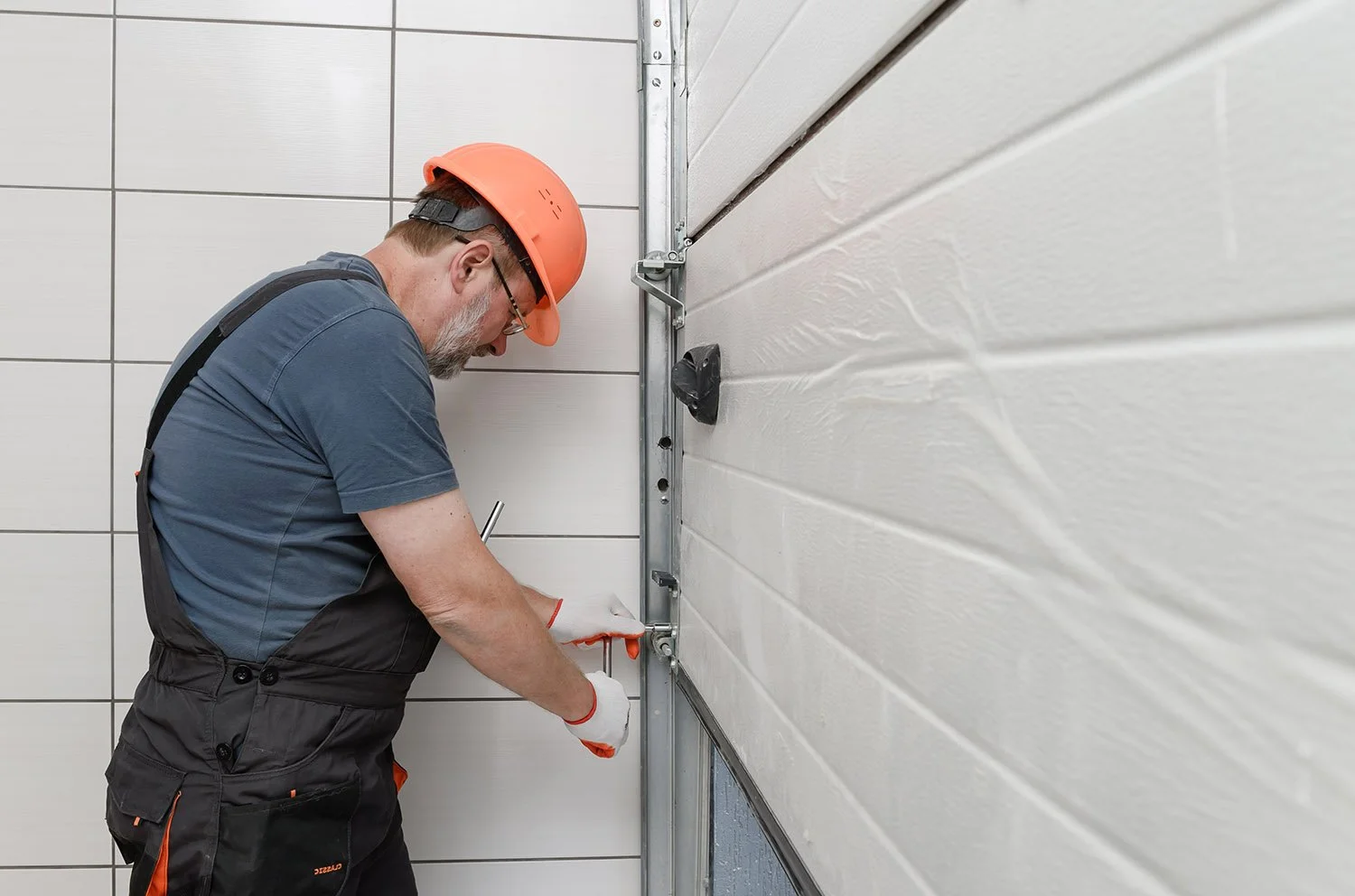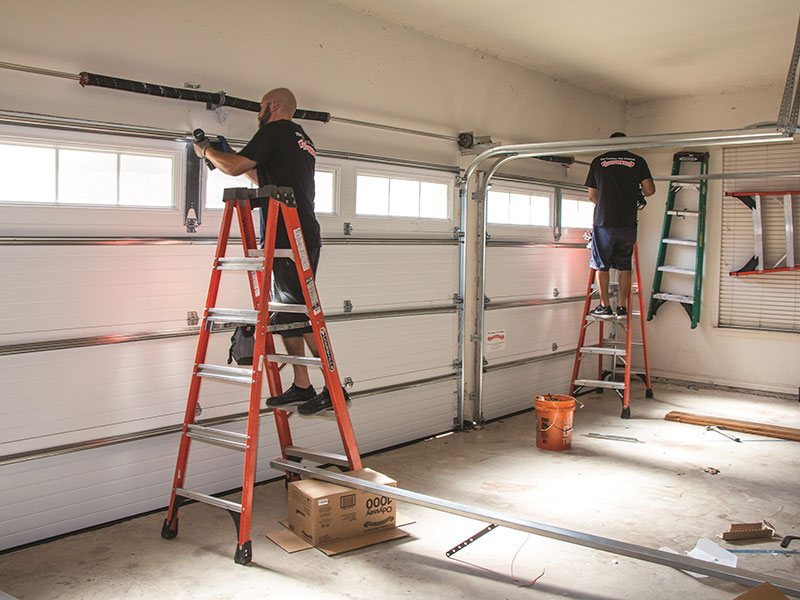Garage Door Opener Noise Reduction Reseda Garage Door Repair Services

One of essentially the most telltale signs of a defective garage door sensor is that if the door does not shut fully. Instead of fully closing, the door might reverse and open again when it senses an object. In some circumstances, you could notice that the garage door initiates closing however then quickly reverses back up. This behavior could be attributed to misaligned sensors, permitting them to falsely interpret an obstruction.

Physical obstruction is another issue to consider. Dirty or blocked sensors may not perform correctly. Check to see if there might be any filth, debris, or spider webs obstructing the sensor lenses. A easy cleansing may resolve the difficulty. Using a delicate material, gently wipe the lenses to ensure they are clear and free of any obstacles.
Garage Door Torsion Spring Replacement Reseda Garage Door Repair & Replacement
A malfunctioning garage door opener remote can sometimes be misdiagnosed as a sensor problem. If the remote fails to speak with the garage door, it’s worth testing the sensors immediately. Use the wall button to open and shut the door. If the door operates usually with the wall switch but not with the remote, the problem might lie with the remote itself.
Testing the sensors immediately may help determine their operational status. To do this, you need to use an object to block the sensor beam while the door is closing. If the door reverses upon sensing the obstruction, the sensors are probably functioning accurately. If the door continues to close without reversing, this signifies a problem with one or both of the sensors.
Environmental factors might additionally affect sensor performance. If the sensors are exposed to heavy rain, snow, or extreme heat, they could malfunction. Even humidity can play a job in sensor reliability. If the weather has been significantly harsh, consider whether these circumstances could presumably be impacting your sensors.
Electrical points can even result in sensor malfunction. Inspect the wiring connecting the sensors to the garage door opener. Look for frayed or damaged wires, which can prevent the sensors from receiving power or communicating properly with the garage door system. If the wiring looks good, check the facility supply to the opener itself.
Garage Door Replacement Cost Reseda Garage Door Roller Repair
In some cases, inside malfunctions could happen throughout the sensors. Over time, the inner mechanisms can put on out, resulting in surprising failures. If cleaning and adjustments don't yield optimistic outcomes, sensor replacement could additionally be the most effective plan of action (Garage Door Opener Noise Reduction Reseda). Many garage door sensors are relatively cheap and easy to exchange.
In addition, it could be prudent to consult the manufacturer’s guide for specific troubleshooting ideas associated to Garage door opener remote programming Reseda your mannequin. Each garage door system can differ, and the manual might present steering that's particularly relevant to your situation. Following these tips can typically improve the troubleshooting course of.
Overhead Garage Doors Reseda Professional Garage Door Technicians
Regular maintenance can extend the life of your garage door sensors. Periodic cleaning, testing, and visual inspections might help catch issues early before they escalate into important issues. Regular care can be sure that your sensors are in good working condition, maintaining the safety of your garage door operation.

In abstract, the importance of figuring out how to inform if a garage door sensor is unhealthy can't be overstated. From evaluating bodily obstruction and sensor alignment to testing the wiring and inside parts, a spread of things contribute to sensor performance.
Garage Door Installation Cost Reseda Expert Garage Door Repair
Regular maintenance, combined with thorough testing, can also stop future points (Broken Garage Door Spring Reseda CA). When unsure, reaching out to professionals can present reassurance and much-needed experience. Ultimately, ensuring that your garage door sensors are functioning appropriately enhances the general security of your personal home and its automatic systems.
- Check for blinking or strong lights on the sensor; a strong mild usually signifies regular operation, while blinking may signify a problem.
- Test the alignment of the sensors; misaligned sensors can forestall the door from functioning correctly, resulting in a possible failure.
- Look for any seen damage or obstructions near the sensors; dirt, spider webs, or physical breakage can intrude with their operation.
- Listen for uncommon sounds when the garage door is operated; grinding or clicking noises can point out sensor malfunction.
- Conduct a guide check by inserting an object within the door’s path; if the door would not reverse, the sensors may be faulty.
- Inspect the wiring related to the sensors for frays or free connections that might disrupt energy provide or performance.
- Evaluate the temperature situations; excessive weather can have an result on sensor efficiency, resulting in short-term points.
- Use a multimeter to examine for power running to the sensors; a lack of voltage can indicate a sensor problem or wiring concern.
- Consider the age of the sensors; older fashions might turn into unreliable and higher changed quite than repaired.
- Seek professional assistance if the problem persists despite troubleshooting; an expert can diagnose points that will not be instantly obvious.undefinedHow can I tell if my garage door sensor is malfunctioning?undefinedCheck for a red or amber light on the sensor. If it’s not illuminated or blinking, the sensor may be bad. Additionally, you'll find a way to manually block the sensor and see if the garage door reacts correctly — if it does not reverse, the sensor may need replacement.
What are the common indicators of a defective garage door sensor?undefinedCommon signs include the garage door failing to close fully, erratic motion, or not responding to remote commands. A misaligned sensor Garage door cable replacement Reseda CA may also set off these issues, so inspect their positioning as a half of your diagnostic course of.
Can a nasty garage door sensor prevent the door from closing?undefinedYes, a malfunctioning sensor could cause the garage door to reverse or fail to shut. This is a safety feature designed to forestall injuries or accidents, so pay attention to the conduct of your garage door.
Garage Door Weather Seal Reseda Affordable Garage Door Repair
How do I clean my garage door sensors?undefinedTo clear garage door sensors, gently wipe the lenses with a gentle, dry cloth. Avoid utilizing harsh chemical compounds, which can injury the sensor. Regular cleaning can enhance functionality and prevent sensor-related points.
What should I do if my garage door sensor is misaligned?undefinedCarefully realign the sensors so they face one another instantly. Use a level to check their positioning. If aligning them doesn’t resolve the issue, consider in search of skilled assist for further inspection.
Garage Door Emergency Release Reseda Precision Garage Door Installation
Is it necessary to switch each sensors if one is bad?undefinedWhile it's not strictly essential to exchange both, doing so is advisable. Installing a model new sensor with an old one may lead to compatibility points, affecting the garage door's performance.
Can weather have an effect on the efficiency of garage door sensors?undefinedYes, excessive climatic conditions can impact efficiency. Heavy rain, snow, or humidity may obscure the sensors or have an effect on their alignment. Regular maintenance and inspection during seasonal changes may help mitigate these effects.

Garage Door Motor Replacement Reseda CA Quick Garage Door Tune-Ups
What if my garage door sensor still doesn’t work after replacement?undefinedIf the new sensor doesn’t resolve the issue, check for wiring issues or consult an expert technician. There may be extra points with the garage door opener or other elements that require attention.